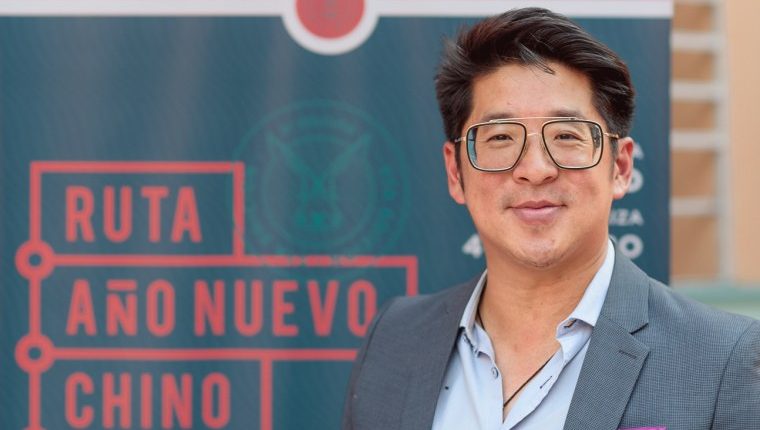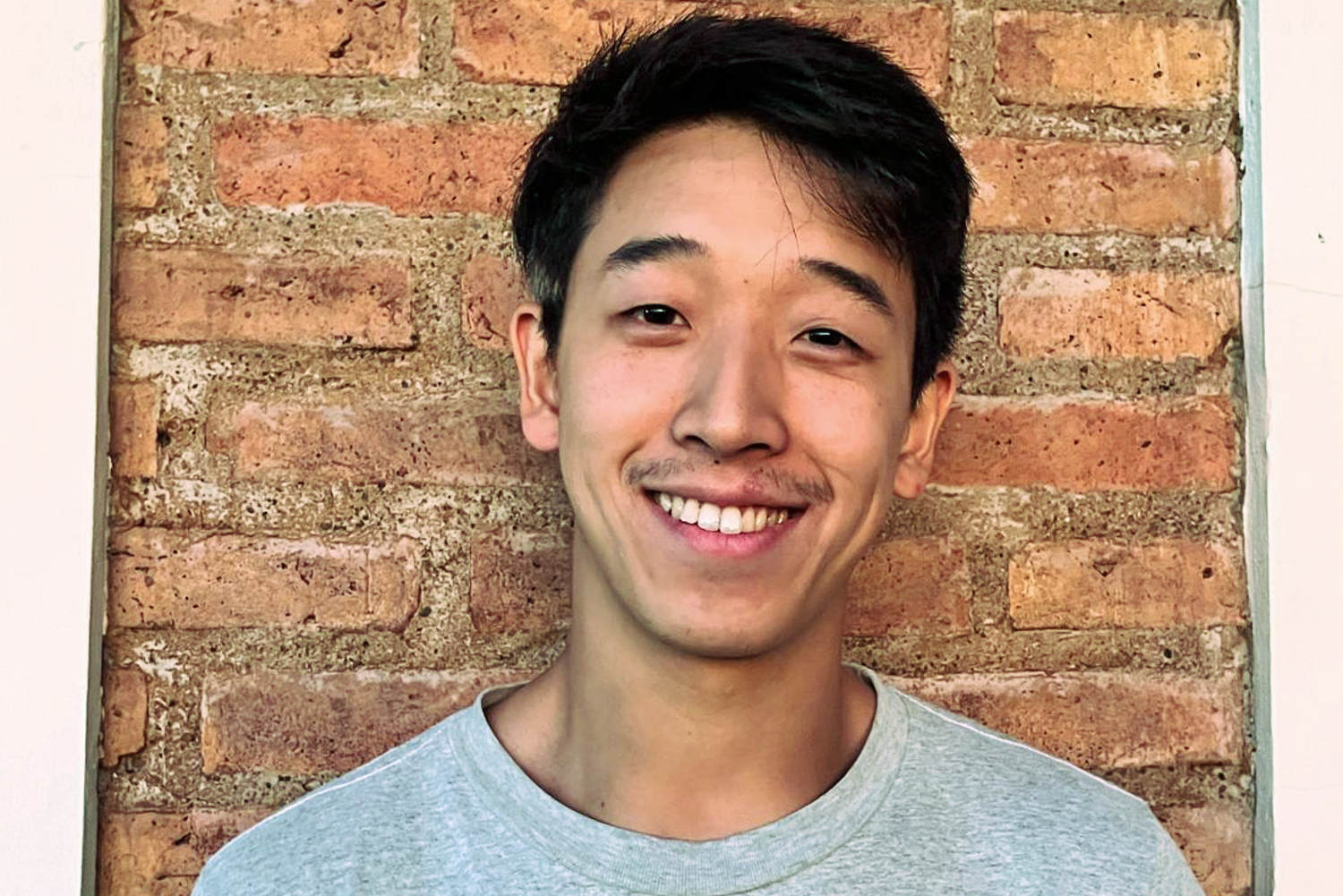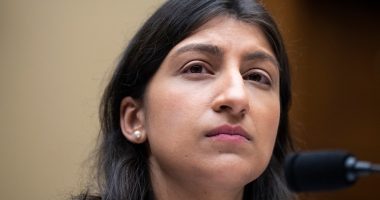BUENOS AIRES, Argentina — On Dec. 11, the all-caps phrase ‘UN CHINO’ — or ‘a Chinese’ — began trending in Argentina on the social media platform X.
That night, the local spinoff of the “Big Brother” franchise aired the premiere of its latest season. Argentine television watchers were processing their surprise: For the first time in the hit show’s 11-season run, the cast of houseguests included an Asian contestant in the form of 24-year-old Martín Ku, the son of Chinese and Taiwanese immigrants.
It was a seminal moment for Asian Argentine representation in mainstream media.
In this South American country of 45 million people, no TV show rivals the big-tent appeal of “Gran Hermano.” The reality juggernaut is the most-watched program on Argentine airwaves, with mainstream news publications regularly covering the intrigue and machinations of each season as it progresses.
So when Ku strode into the “Big Brother” house, luggage in hand, it was a resonant milestone.
“We’ve been waiting for this for years,” said Carlos Lin, 44, an event emcee who has become one of the faces of Buenos Aires’ Chinese diaspora. “It’s huge.”
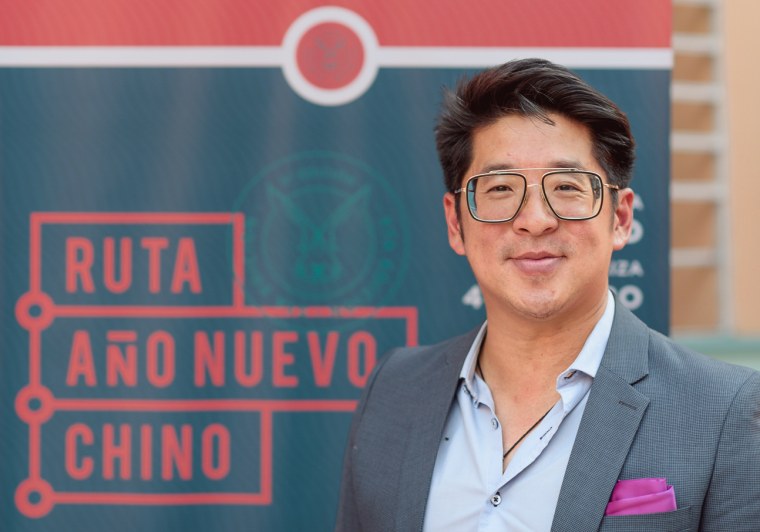
The inaccurate notion that Argentina is a white nation has widespread buy-in. Just last year, U.S. Rep. María Elvira Salazar, R-Fla., drew attention after praising Argentina for having “only one race” and being “completely homogenous” — a reference to the country’s perception as white.
It’s a misconception that is due in part to what experts, including Afro Latino scholars describe as a long-running “whitening process,” whereby the country’s leaders have boosted a European self-image while collapsing references to racial categories — the Argentine census bureau failed to collect racial information for much of its history.
In 1853, Argentina’s first constitution plainly stated that “the federal government shall foster European immigration.” Fast forward to the present day, a commitment to an exclusively European sense of identity continues to hold sway.
“We are all descendants from Europe,” the country’s right-wing president, Mauricio Macri, said in 2018. In 2021, left-wing President Alberto Fernandez said, “The Mexicans came from the Indians, the Brazilians came from the jungle, but we Argentines came from the ships.”
Marginalization — and ongoing stereotypes
The idea of an exclusively white Argentina lives on in part because of the thorough marginalization of Argentines of color. That’s especially true of the Chinese diaspora, which according to recent estimates numbers roughly 200,000 people, making it Argentina’s largest non-Latin American immigrant group.
Lucía Luna Li, 23, was born in the Buenos Aires metropolitan area to Chinese parents. Argentina, like the United States, grants birthright citizenship, meaning that those born in the country are citizens.
Li said she almost never saw someone of Asian descent in Argentine media growing up. Nowadays, she noted, it still isn’t uncommon for her to receive comments on social media that put her Argentine identity in question. On TikTok, she describes herself in her bio as being “an argenchina,” a play on words on Argentine and Chinese.
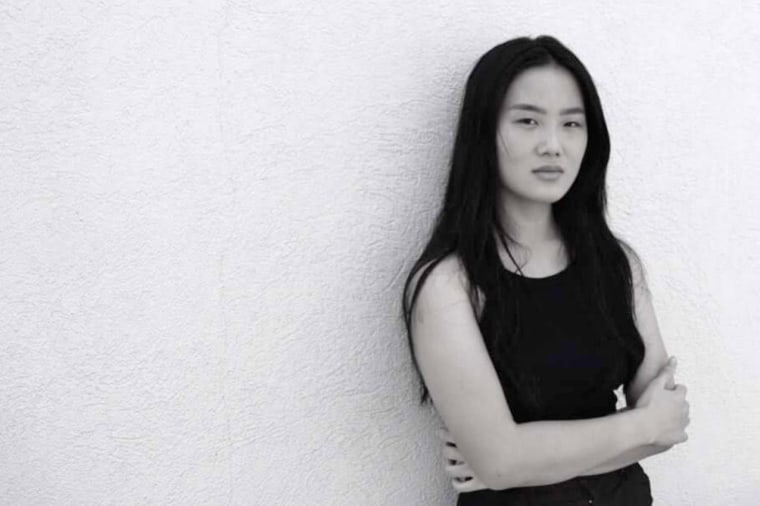
Given the reality genre’s widely documented struggles with diversity in the United States, where a “Big Brother” contestant had to be sent home last year for using a racial slur, it is perhaps not surprising that Ku’s pioneering foray into the Argentine reality space caused racial prejudice to rear its head in various degrees.
During the season premiere, the show aired a clip of Ku answering icebreaker-type questions, including if he eats asado, the typical Argentine barbecue meal, with chopsticks. Newspaper coverage recapping the show reductively refers to Ku as “the Chinese.” Earlier this month, another contestant mockingly pantomimed speaking Chinese, and poked fun at Ku’s mother’s Chinese name, in a display many fans found openly racist and xenophobic.
Still, there’s cautious optimism within the Chinese Argentine community that Ku’s star turn on “Big Brother” could help bring about positive change.
“It could help make Chinese folks a bit more accepted,” said Gustavo Ng, a Buenos Aires-based journalist who has written extensively about China-Argentina relations. “But just Argentinean Chinese. Chinese from China, that’s another story.”
A wave of migration and a new generation
Li’s parents moved from China to Argentina in the mid- to late-1990s. Neither had finished high school and opportunities to climb out of poverty in their hometown were at the time very scarce.
“People were hearing that so-and-so went to Argentina and they were doing better than they were at home,” Li said. Her family story is far from unique.
The bulk of Chinese immigration to Argentina took place through the ’90s, during a short-lived period of strong economic growth when government policy pegged the Argentine peso to the U.S. dollar. Those migration flows quickly ceased when it became clear that China and Argentina were heading down two starkly divergent development paths. While China’s economy expanded year after year, a generationally severe debt crisis rocked Argentina in the early 2000s, and stability has remained elusive since then. Late last year, frustrations over triple-digit inflation paved the way for a right-wing outsider to rise to the presidency.
As laid out by Lin and Ng, the Chinese immigrants who settled in Argentina in the 1990s were single-mindedly focused on making money and raising their standard of living. They found opportunity in the supermarket sector, setting up neighborhood grocery stores and convenience stores en masse — and fast becoming synonymous with that industry. In the contemporary local vernacular, “voy al chino” has come to mean “I’m picking up groceries.”
It is difficult to find a Chinese Argentine without a connection to the grocery industry (Ku’s own family manages a supermarket in his hometown of Viedma, near the Atlantic coast). Current estimates put the number of Chinese-run stores nationwide at roughly 11,000.
Lin says his parents opened what is likely one of Argentina’s first Chinese supermarkets back in 1989. He started helping out at the store as a young teen, working to smooth out communication between his parents and their customers.
“What happens is that many of the Chinese people who run supermarkets don’t speak Spanish that well. So, they don’t really form a bond or a closeness with their clients, who may be people that live right around the corner from them,” Lin said. “There’s always a distance.”
Ng has a similar view.
“They came to do business — the level of integration has historically been very, very low.” he said. Argentine prejudices may also have played a role. According to Ng, Chinese people are seen as among the least “desirable” type of immigrants to the country, alongside newcomers from poorer parts of Latin America.
Because Chinese immigrants are so associated with grocery stores — and so absent from other most aspects of daily life — many Argentines’ only contact with the Chinese diaspora takes place during frequent but fleeting grocery runs.
“If you look for Chinese people in sports, in the cultural or artistic sphere, in politics, you won’t find any, with just a few exceptions” Ng said. “For a Chinese guy to make himself famous on a big TV show, truth is it’s exceptional, super exceptional.”
Lin remembers coming up against barrier after barrier in his own attempts to make it onto national TV as a host and news anchor starting in the mid-aughts.
“The owner of a channel once made a comment like, ‘How could we have a Chinese guy report the news on camera?’ It was still too strange at that point.” He took opportunities where audiences could hear his voice but not see his face. On-camera opportunities wound up coming via TV programs that dealt specifically with China, including a show that helped viewers learn basic Chinese.
More visibility — and hopes for change
Nowadays, fully bilingual and bicultural second-generation Chinese Argentines are increasing their community’s visibility through social media. Many of their viral videos on TikTok challenge Argentine negative stereotypes about Chinese people — and get a laugh in the process. There are jokes about Chinese people looking alike and Chinese shopkeepers being rude and jokes about going from worshipping Buddha to worshipping Messi.
Lin says that type of humor is an unavoidable first step for Chinese Argentines trying to break the ice and get into the Argentine public’s good graces. Ku leaned onto that tactic in his “Big Brother” debut as well, pretending he didn’t speak Spanish when he first met the other houseguests, before revealing a perfect command of the language. The more difficult part, according to Lin, is transitioning from being a gag to someone who is seen as being just like anyone else, a normal Argentine.
The long-running format of “Big Brother” is allowing Ku, who has so far survived eight rounds of elimination, to do just that. The longer he stays on the show, the better the chance he will have to make viewers re-evaluate some of the prejudices they might have, Lin says.
Li, the 23-year-old, says she has seen firsthand how the treatment of Chinese people in Argentina has gradually improved over the course of her life.
“They don’t treat you like an alien anymore,” Li said.
As someone who dreams of a media career, she is hopeful Ku’s season on “Big Brother” will create more opportunities for people like her.
“When I was kid, my grandfather would say, ‘Time opens all doors to those who know how to wait,’” Lin said. “Martín’s casting is the change of an era.”
Source: | This article originally belongs to Nbcnews.com
